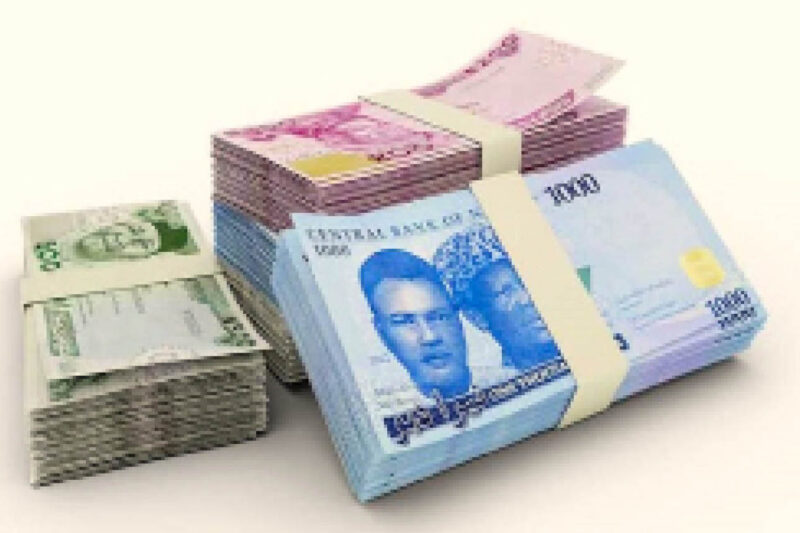Residents of Maiduguri in Borno State say the scarcity of cash is putting a damper on the festive season and they are lucky if they are able to withdraw enough money to cover just the basics.
Data from the Central Bank of Nigeria (CBN) shows the country’s currency in circulation is a record-high ₦4.5 trillion – yet residents of Maiduguri in Borno State are experiencing a cash crunch, with queues at automatic teller machines (ATMs) stretching endlessly.
The scarcity of cash is putting a damper on the festive season. Usually a time of celebration, residents say they are lucky if they can withdraw enough money to cover just the basics.
They say the cash crunch is a challenge that affects the lives of millions every day, particularly those without access to banking in hard-to-reach rural areas.
Small-scale retailers and market traders, most of whom operate on a cash-only basis, say reduced spending power is having a negative effect on business and their sales are down.
Many residents say point of sale (PoS) agents are exploiting the lack-of-cash plight. Some, they say, hoard cash. Others empty ATMs, leaving nothing behind for ordinary citizens.
“Although there are a large number of ATMs, the PoS agents withdraw huge sums of money. They have five to 10 different bank cards and they use all of them to withdraw cash. After queueing for hours, by the time ordinary people get to the dispensing machine, there is nothing left and you leave empty-handed,” said Mohammed Musa, a resident of Maiduguri, the capital of Borno State in Nigeria’s northeast.
“You can queue all day and still end up with nothing. And often, only one ATM will be in working order, with the others offline. You cannot rely on the network. It is extremely frustrating.
“You can withdraw up to ₦20,000 from your own bank, but if you use another bank the limit is ₦5,000. That is another reason for the long queues.”
Musa said when there were insufficient funds in the ATMS, people resorted to using the services of PoS agents in the queue, even though they had to pay commission.
“Out of 20 people queueing at an ATM, at least three of them will be PoS agents and each of them come with as many as five to 10 bank cards. By the time you get to the ATM, there is nothing left and you have to use the services of the PoS agents at huge expense. The commission they charge is increasing but you have to use their services because you can hardly get cash from the ATMs. Some PoS agents take up to 20% of the withdrawal.”
Suleiman Abubakar, the chairman of the Borno State branch of the Association of Mobile Money and Bank Agents in Nigeria, said he was not aware of PoS agents exploiting the cash scarcity.
“These are just baseless accusations. There has been a scarcity of cash since the naira was redesigned in 2022 and there were not enough new notes in circulation. There is still a scarcity and it is affecting many.
“It is permissible for PoS operators to go to ATM galleries and withdraw the amount they need to operate. It is not illegal.”
Residents said that at a time when everyone was experiencing the worst cost-of-living crisis in decades, the cash scarcity was compounding the financial woes of all Nigerians – especially during the festive season.
And, they said, it was not just PoS agents who were exploiting the cash crunch, traders and retailers were also “extorting” money by hiking the already exorbitant cost of commodities, including food.
“As soon as traders hear that you do not have cash and will make a transfer, the price rockets,” said Mohammed Muktar. “I went to the market known as ‘s3bd3 B3laa’ to by food. A big bowl of maize normally costs between ₦1,700 and ₦1,800 and that is what I would pay if I had cash. But when I told the trader I wanted a money transfer, the price was suddenly ₦2,000.
“For every purchase you make, the trader adds at least ₦200. The price of a bowl or mudu of an item which usually costs ₦1,000 increases to ₦1,200 or even ₦1,500 if it is a transfer payment but if it is hard cash, you pay the normal price.”
A consumer, who asked to remain anonymous, said: “If you go to the market today, traders do not want to have anything to do with transfers. If you want to buy rice, sugar or grains and you mention a transfer, the trader will tell you that particular item is out of stock even though you can see it in plain sight.”
Adam Gujja Mohammad said that often the network was offline which made it difficult to transfer money.
“Failed transactions and delayed transfers are becoming the norm and traders will do just about anything to force you to pay cash.
“They increase the prices of goods to deter you from making a transfer. The prices depend on the type of transaction. If a commodity costs ₦20,000, you end up paying ₦25,000 if the money is transferred – and that is if the network is up and running.
“Some traders are unscrupulous. As soon as they hear you want to make a transfer, the cost goes up. I have experienced this cutthroat behaviour at the Gongolong Lawanti, Molai and S3bd3 B3la markets. Often you cannot afford even the basics.
“People want to buy goods for the festive season but they do not have cash. Many people are not going to be able to celebrate this festive season. For most it is going to be a grim time.”
AYSHA MUSTAPHA KOLOMI









